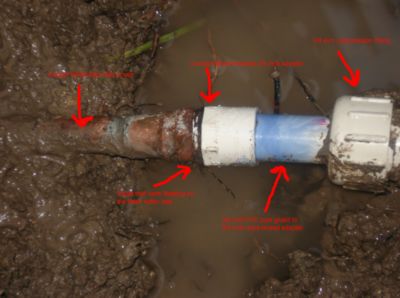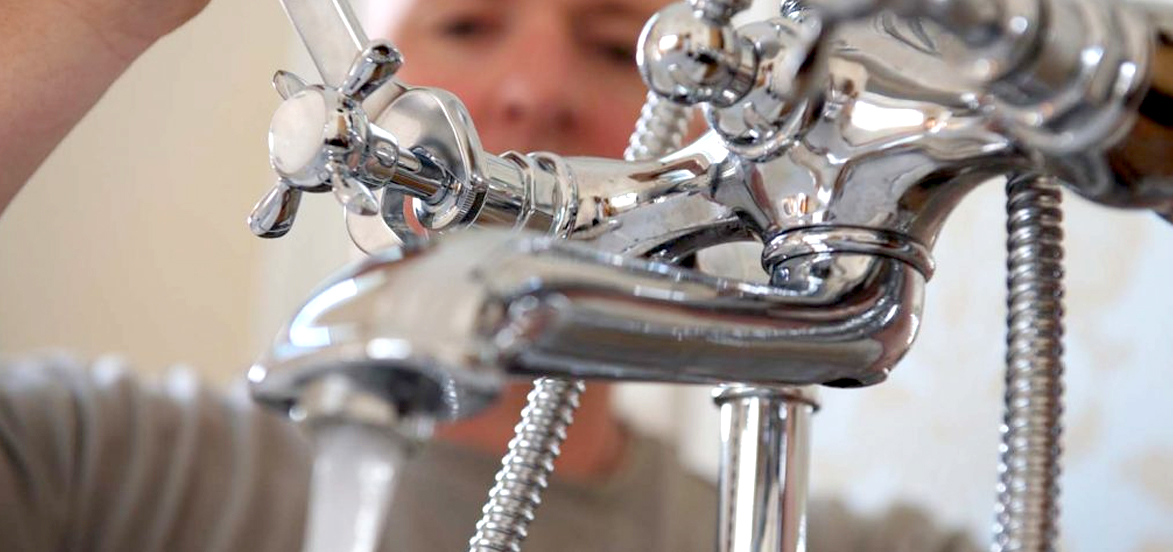The content which follows involving How to Find and Prevent Water Leaks in Your Home is exceedingly engaging. Read it for yourself and see what you think of it.

"Be cautious of little costs. A small leakage will sink a wonderful ship." - Benjamin Franklin.
He couldn't have actually been much more right since water leakages in our homes lead to a waste of sources, enhancing our water bills. Although this boost could seem negligible initially, it can lead to substantial expenses that can break your financial institution. Other than a rise in costs, water leakages additionally trigger unwanted organic growth, structural damage, and also electrical risks.
Determining if you have a water leak isn't always easy because of being not able to see a lot of the pipework in your house. If you have had a boost in your water costs recently, observed water spots on walls and also ceilings, smelt poor smell, etc. You might intend to take into consideration requesting plumbing solutions to get it checked out.
There are several sources of water leaks, and we have actually compiled the usual reasons listed below. Inspect to see if you have had associated concerns in your home lately.
Clogged drains
Food fragments, dirt, and also oil can create clogged drains pipes and obstruct the flow of water in and out of your sink. Raised pressure within the gutters can create an overflow and end up fracturing or breaking pipelines if undealt with. To prevent blocked drains in your home, we encourage you to prevent pouring fragments away as well as regular cleansing of sinks.
High water stress
You discovered your home water stress is more than usual yet then, why should you care? It runs out your control.
It would certainly be best if you cared because your average water stress ought to be 60 Psi (per square inch) and also although your house's plumbing system is made to stand up to 80 Psi. An increase in water stress can put a pressure on your home pipelines and also result in splits, or even worse, ruptured pipelines. Get in touch with a professional regarding controling it if you ever notice that your house water stress is greater than common.
Rust
As your pipework grows older, it gets weak and also more at risk to corrosion after the frequent flow of water via them, which can gnaw at pipes and create splits. A noticeable indicator of deterioration in your house plumbing system is discoloration and although this could be difficult to discover due to many pipes hidden away. We suggest doing a regular examination every couple of years as well as transform pipes once they are old to make certain a sound plumbing system
Weakened pipe joints
Pipe joints are the components of our plumbing system where the pipelines link. It is important to keep in mind that also though pipes are designed to endure pressure and last for a while, they weren't developed to last permanently; for that reason, they would wear away over time. An usual indication of damaged pipe joints is excessive sound from faucets.
Damaged seals
Another cause of water leakages in residences is broken seals of home devices that utilize water, e.g., a dish washer. When such home appliances are installed, seals are set up around water adapters for simple passage of water via the device. Hence, a damaged seal can create leak of water when being used.
With little or no understanding of plumbing, comprehending your house's plumbing system adequate to repair some of these issues (without effect) can be an inconvenience. Connect with plumbing professionals in Pittsburgh, Providence, Rochester, and also environ today, and they'll make those issues go away.
He couldn't have actually been more ideal because water leakages in our houses result in a waste of sources, boosting our water costs. If you have had a rise in your water bills lately, saw water discolorations on walls as well as ceilings, scented lousy odor, and so on. A boost in water pressure can put a strain on your residence pipes and also lead to cracks, or worse, ruptured pipelines. Another cause of water leakages in residences is damaged seals of residence appliances that use water, e.g., a dishwashing machine. When such devices are mounted, seals are installed around water connectors for easy passage of water via the equipment.
5 TIPS IN DETECTING A WATER LEAK IN YOUR HOUSE
Water leaks can be hard to find in your home, yet they can be so common. We rely on water every day in our home, which is why a leak can cause big problems. By detecting them early, you can save money and further damage, getting the problem fixed as soon as possible. Here are 5 tips to help you detect a water leak in your home, so you can contact a plumber straight away and get the issue sorted.
Check your water meter
Many people underestimate the value of the water meter in their home. It can be one of the best ways to tell if you have a leak early on, so you can get on top of it before issues start arising. Start by turning off all the water in your home: taps, washing machine, dishwasher, etc. Now take a look at the meter – if it’s still changing with everything turned off, it’s likely you have a fast-flowing leak that you need to get on top of straight away. If nothing changes, then leave your meter for an hour or two and come back to it. Did it change in this time? It’s likely you have a slower leak, which isn’t as urgent but still handy to get fixed so it doesn’t become a bigger problem.
Keep an eye on your bill
Another good way to detect a leak in your home is by keeping an eye on your water bill. It helps if you have a past bill from the same period of time. You can compare like for like and determine whether your water usage has increased significantly. If it has, there may be a leak in your system that you haven’t picked up before. A professional plumber can check through all of your pipes and determine where it is coming from.
Look for damage
If you have a leak inside your home, you will notice damage over time. Take a look at your showers and bathtubs and note whether any of the tiles surrounding the area seem to be discoloured or damaged in any way. There may be water stains, mould or peeling material that has resulted from a build up of moisture over time. Make sure you take a look under sinks at the back of cupboards that don’t get accessed regularly. This is where damage can go unnoticed and build up over periods of time.

I ran across that entry about Common Causes of Water Leaks in the Home while doing a search on the search engines. Do you know someone else who is looking into Where to Find Water Leaks? Do not hesitate to promote it. We truly appreciate reading our article about Common Causes of Water Leaks in the Home.
24/7 helpline active.